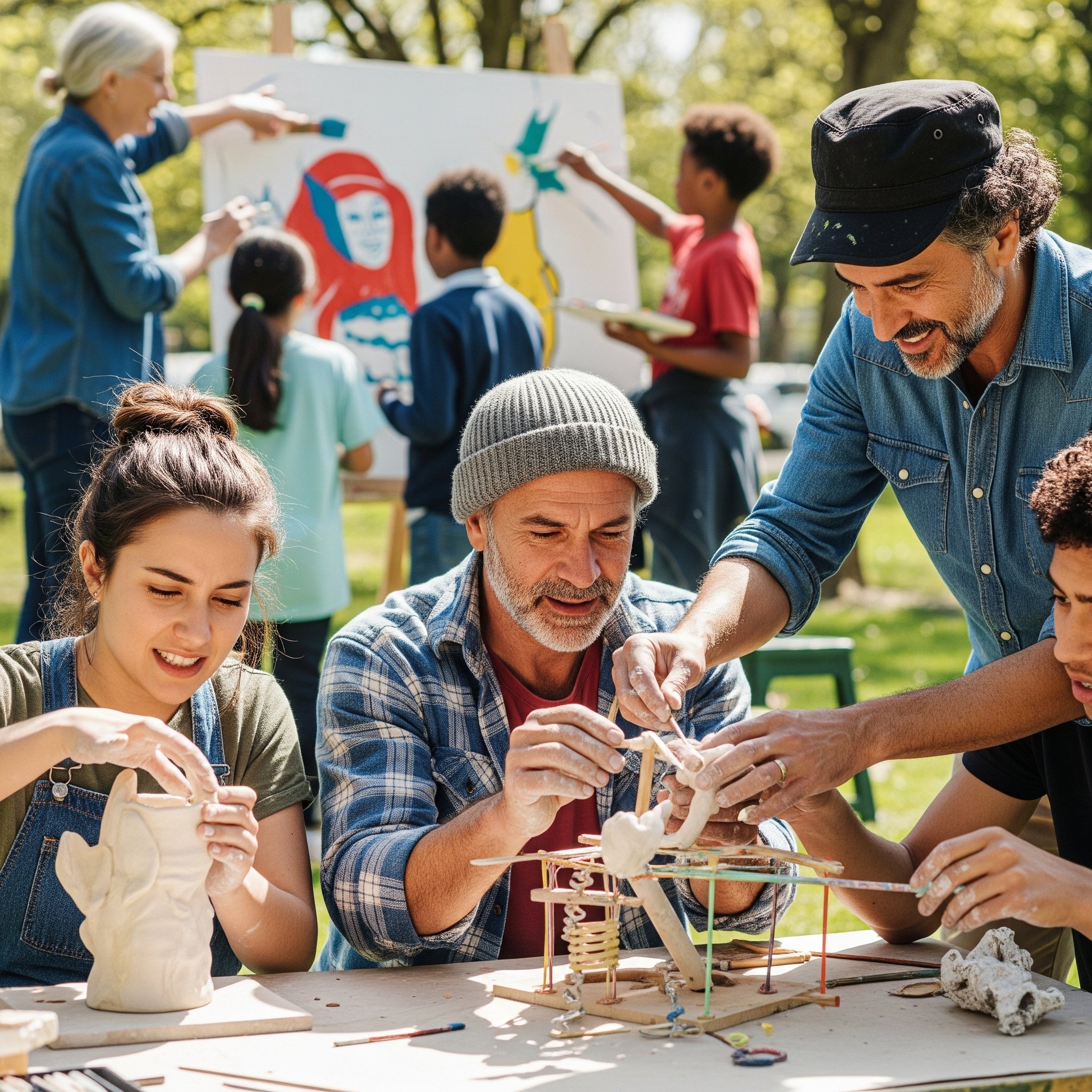Only Variation and Innovation Today Will Provide Answers for Tomorrow
A profound truth that urges us to rethink our systems for learning
[Feature blog by Caroline E. Whalley]
Imagine a world where learning isn't a chore, but an exhilarating journey of discovery.
A world where every individual, no matter their age, feels a spark of curiosity and a deep-seated passion for uncovering new possibilities.
This isn't just a dream; it's a vital necessity for our rapidly changing world.
As I shared with a group of insightful educators back in 2019, "only variation and innovation today will provide tomorrow’s answers.". This isn't just a catchy phrase, it's a profound truth that urges us to rethink how we learn and grow as humans.
We need to cultivate a vibrant, lifelong love for learning in everyone, nurturing curious and passionate individuals who can confidently navigate a joyful and fulfilling path through life.
Just look around us - the signs of change are everywhere.
From the breathtaking pace of AI advancements to the pressing realities of global health and climate challenges, our familiar ways of doing things are simply not enough.
The UN Secretary-General, António Guterres, starkly reminds us that:
"Our world as we know it and the future we want are at risk".
This isn't a distant threat; it's an urgent call for us to respond with renewed energy and a fresh perspective on learning. The United Nations' Sustainable Development Goal 4, which champions "inclusive and equitable quality education and promotes lifelong learning opportunities for all", perfectly captures this essential mission.
But to truly achieve it, we need to transform how both our education systems and individuals embrace the very idea of being a learner.
The truth is, many of us feel a deep-seated disconnect from our natural learning selves.
For far too long, the idea of being a "learner" has been confined by strict notions of "time, age, life-stage, task", often tied to formal education goals. It's as if learning is something we did in a classroom, rather than an active, intrinsic part of who we are.
This disconnection has real consequences:
a worrying decline in happiness among children in school;
a pervasive fear of failure; and
diminished life satisfaction, all exacerbated by relentless academic pressure.
Our current systems inadvertently push us towards becoming "standardised learners" driven by external performance metrics and a need for compliance, rather than the boundless, intrinsic curiosity that can sustain us throughout our lives.
The heartbreaking outcome? Too many individuals feel like "nothing" if they don't hit those predefined targets. But what if we could break free from this cycle?
What if we could ignite a "Connected Learner" culture, where every individual understands that they are, at their very core, an innate lifelong learner?
Imagine fostering emotional resilience and boosting well-being and life satisfaction by truly recognizing the inherent worth each person brings to their learning journey.
This means cultivating a vibrant growth mindset, where challenges and missteps aren't seen as failures, but exciting opportunities for growth. It’s about transforming "what I can't do yet" into a powerful springboard for future achievement.
Picture a world where we actively establish and amplify learner voices, empowering individuals to challenge assumptions, contribute to knowledge creation, and engage more deeply with their emotions and the entire learning process.
This isn't just about sharing ideas; it's about disrupting old patterns and building a collaborative learning environment where everyone feels heard and valued.
And finally, envision cultivating profound self-determination and the ability to embrace a compelling vision for how personal learning can contribute to a shared future for our communities and the wider world.
This ignites creativity, fuels innovation, and equips us all to navigate change with confidence and purpose.
As Andrew Scott and Lynda Gratton point out in 'The New Long Life,'
clinging to a "standardised learner" model risks leaving us unprepared for our future.
The world ahead will increasingly demand uniquely human attributes that AI, for all its marvels, cannot replicate:
emotional intelligence
boundless adaptability
sharp critical thinking
nuanced ability to thrive in complex social interactions.
By passionately embracing a philosophy that prioritizes genuine engagement and deep connection, we can empower individuals not just to survive, but to truly flourish in this dynamic landscape.
At Learning Allowed, we believe in this transformative power.
We are dedicated to nurturing curious, passionate individuals who absolutely love to learn, equipping them with the confidence and skills to navigate their unique paths and become powerful catalysts for positive change in their own lives and within their communities.
This is how we ensure that "only variation and innovation today will provide tomorrow’s answers."
[Article references]
Guterres, A. (2018). Our world as we know it and the future we want are at ris
Scott, A., & Gratton, L. (2020). The New Long Life: A Framework for Flourishing in a Changing World. Currency.
The Children's Society. (2022). The Good Childhood Report 2022.
United Nations. (n.d.). Sustainable Development Goal 4: Quality Education. Retrieved from https://sdgs.un.org/goals/goal4
Dweck, C. S. (2006). Mindset: The New Psychology of Success. Random House.
Frankel, S., & Whalley, C. E. (2023). Learning Allowed: children, communities and lifelong learning in a changing world. Emerald.
Gatto, J. T. (2002). Dumbing Us Down: The Hidden Curriculum of Compulsory Schooling. New Society Publishers.
PISA (Program for International Student Assessment). (2018).
UNICEF. (2020). Worlds Apart - A Report on Child Well-being in Rich Countries.
Watkins, C. (2008). Learning to Learn


